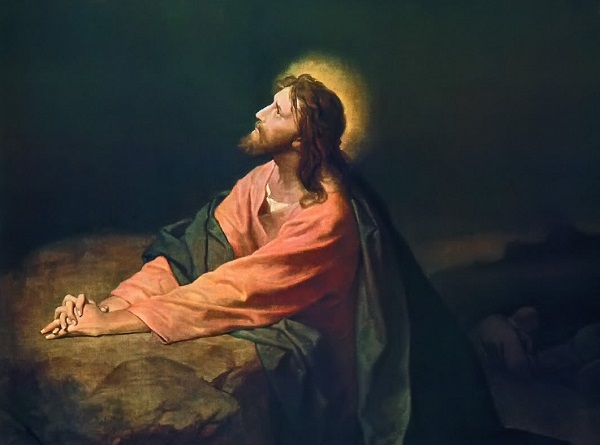Eternal Life
14 June 2021As we move from the feast of the Ascension to that of Pentecost, we’re essentially progressing from the feast of the glorification of human nature to that of our illumination. Between these feasts, the Church inserts the commemoration of the 1st Ecumenical Synod, which convened in Nicaea in Bithynia. The Sunday of the Holy Fathers is a feast which is primarily concerned with the truth of the faith. Not with faith as an ideology, as a theoretical evolvement approached and managed by the brain, through reason, or by memorization. Rather, with the faith in its real dimension, its essential form, the very truth.
Eternal life as knowledge
The Gospel reading is from the beginning of Christ’s prayer before he went to the garden of Gethsemane. Christ is preparing for his voluntary sacrifice on the cross and prays. The beginning of the prayer is marked by ‘The hour has come’. The time has arrived which was the reason for his incarnation. The appearance of the Lord on earth served many purposes, but the most important of all was this: to ascend the Cross and to shed his precious blood for us sinners. Christ became a human being in order to taste death. This is why, in icons of the Nativity, he’s typically portrayed not in swaddling-clothes but wrapped in the bandages used for a corpse. Similarly, the manger, which normally is made of wood, is depicted as being marble, looking much more like a tomb.

And though the time of the unique sacrifice has come, Christ prays not for himself, but for his Church, for each one of his people, for each believer. And although he’s going to his death, he prays for the earthly existence of all of us, in the Spirit, with eternal life as the main perspective. Before the Lord of all tasted death he steered us towards eternal life, though not by preaching or simply talking about it. He prays for it as being the sole aim of our life. The first time that Christ speaks with such clarity and desire about eternal life is in this prayer.
And in it he defines eternal life as knowledge. ‘And this is eternal life: that they should know you’. Cyril of Alexandria interprets it in this way: ‘For life is knowledge as bearing the whole power of the mystery and bringing with it a share in mystical theology, through which we become familiar with the living and life-giving Word’. Knowledge is defined not as something dourly intellectual, coldly rational or merely informative. It’s experience, conscious communication and a sacramental encounter with God as the source of life. This is why, in one sense, knowledge is identified with faith. The mood of the verb ‘should know’ is subjunctive in order to express the continuous expansion of this knowledge. Just as God is infinite and life with him is eternal, so knowledge of him will continuously increase without every reaching any boundary.
‘Knowledge’ of Jesus Christ
Eternal life offers knowledge of what? Not of a thing, since it’s not concerned with speculations and a consensus of views, but of a person: ‘And this is eternal life, that they should know you, the only true God, and Jesus Christ whom you have sent’ (Jn. 17, 3). Knowledge of eternal life is dependent upon experiencing God and the person of Christ. In this passage, knowledge of Jesus Christ is shown to be expressly and explicitly equal to knowledge of God. Or better, acquaintance and communion with God are shown to be achieved through acquaintance and communion with Christ as a necessary and reciprocal prerequisite. This is why the person of Christ is the very hub of the Church.
This particular Gospel reading was chosen because of the reference to the Fathers and the Christology of the 1st Ecumenical Synod. It demonstrates that the person of Christ isn’t simply of the highest importance to the Church, but is the sole path which leads to God the Father, the fulness of knowledge, the fulness of communion between God and humankind, and eternal life. Any alteration of the person of Christ, any human distortion or misrepresentation negates this path, this experience and this knowledge. ‘Heresy’ means ‘preference’ and denotes a preference for a path other than the true one, that of salvation, that of Christ. This is why the Church is so sensitive on the matter of heresies: because, on the one hand they negate the only path of salvation, which the person of Christ secured for the human race; and on the other they attempt to pass off human beliefs and constructs as if they were from God. In this way they mock God and lead people astray.
Many people look at the Orthodox Church in its earthly aspects and wonder why there isn’t some visible authority to coordinate and administer it. We aren’t Papists, so we don’t have the Pope as the sole authority. Nor are we Protestants so we don’t have their disorder and fragmentation. What we do have is the truth of the Orthodox faith which recognizes as its only center and authority our Lord Jesus Christ, invisibly present, the head of the Church and the captain of our salvation. Amen






